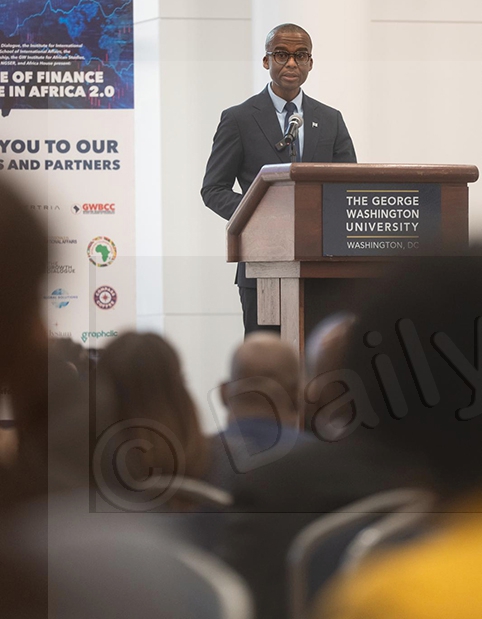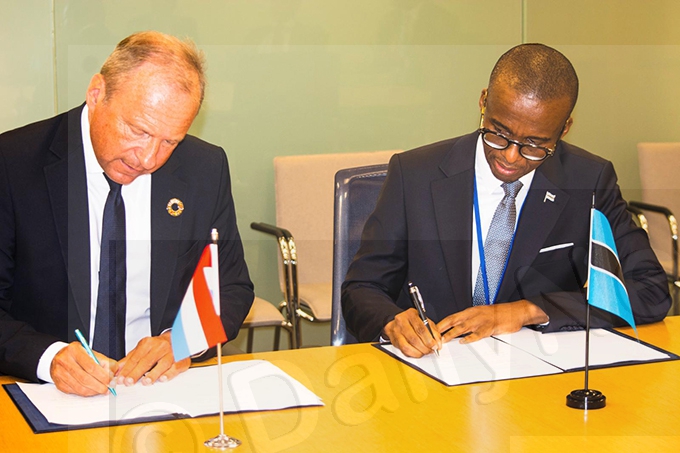Groups call for women representation
03 Apr 2024
Ahead of Botswana’s upcoming general elections due this year, women advocacy organizations around the country are encouraging more women to run for political office.
They are determined to make sure the slogan ‘The Future is Female’ becomes a reality and ensure women’s voices are heard and their contributions valued within the political space.
And the feeling is mutual for these organizations who are of the view that while the current President Dr Mokgweetsi Masisi, has made advances towards gender equality, there is still room for improvement.
They believe that women bring a unique perspective and a set of skills to the table and that having more women in positions of power can help to create a more balanced and fair government. Women’s advocacy comes amid the Independent Electoral Commission’s resolve to hold the second voter supplementary registration scheduled for May 20-31. The first voters’ supplementary came to a close on March 31.
“It is not enough to just have one or two women in positions of power. We need more women at the decision-making table and we need more such representation at all levels of governance.
We need more women in Parliament, in local councils, and in leadership positions within the civil service,” said Ms Kopano Christmas of the Boy Child Foundation, whose other mandate is to support and empower women.
Ms Christmas explained that while the women’s advocacy organisations are encouraging women to stand for elections, the success of their efforts will ultimately depend on the political parties’ selection processes.
“The primary elections will determine who will represent each party in the general elections. This means that many women may be interested in running for office, but may not get the chance to do so if they are not chosen by their parties,” she explained.
Despite these challenges, Ms Christmas says the organisations are optimistic that more women will be able to participate in the coming elections and make their voices heard.
“I will urge women to support those standing for political positions and stop celebrating when a woman has lost either during primary elections or the national general polls,” she said. She cited that the appointment of Commissioner of Police, Ms Dinah Marathe and Minister of Finance, Ms Peggy Serame is a testament that women are capable leaders.
“Many women are holding high positions in government circles and parastatals.
The Permanent Secretary to the President is a woman, and we have more women at permanent secretary positions,” she added.
“We are calling on all eligible women to stand for elections and make their voices heard,” said Ms Christmas.
She said from the early days of Botswana’s independence, women have played an important role in the country’s sociopolitical economy.
On the other side, Emang Basadi, a women’s rights organisation formally registered in 1986 has been carrying consultations with political parties to analyze institutional policies such as manifestoes, constitutions and others.
Secretary General, Dr Cheludo Butale notes that the findings will be used to train political parties on gender mainstreaming, constitutional review awareness campaigns and electoral system review planned for Kang, Palapye, Selebi-Phikwe and Francistown. Dr Butale explained that parties will be taken through the paces on pertinent issues such as gender parity.
Also, Emang Basadi will lobby for the increase of nominated Members of Parliament by the President to 50 per cent. Dr Butale explained that the organisation has also been working with other political parties and women’s organisations in Botswana and had made a submission to the Commission of Inquiry into the Review of the Constitution to include a gender perspective in socio-economic or political provisions of the 1966 Botswana Constitution.
“We are also currently working on a capacity-building project supported by the European Union titled: Botswana Constitutional Review Process: Towards a People Driven Constitution.
She said the project seeks to sensitise, and capacitate the diverse Botswana population on the constitution and the review process, facilitate and document the inclusive and meaningful participation and contribution of all citizens, including women. BOCONGO is the lead organization on the project and has been working with Ditshwanelo, BONELA and Emang Basadi in the past. It held stakeholder dialogues in Palapye, Selebi-Phikwe, Francistown and Hukuntsi focusing on prioritized thematic areas, gender equality and women in politics issues.
“Emang Basadi Women’s Association is not satisfied with the number of women and youth representation in Parliament,” she added highlighting that only seven out of the 63 members of the National Assembly of Botswana are women. Dr Butale said the representation of women continues to be low and that Emang Basadi carried out National Constitutional Awareness Campaigns in 2020 to identify issues that could be included in the constitutional review process ahead of the Presidential call for the reform of Botswana’s constitution.
A national study for increasing women’s representation in politics titled: Mme O Kae or Where is the Mother, was also conducted by Emang Basadi to assess issues that obstruct women from taking up positions of decision-making, especially in the political arena.
The research findings in Gaborone, Palapye, Good Hope, and Kgalagadi North, she explained, indicate several issues that obstruct women from participating in politics including discriminatory laws and patriarchy-based institutions that hamper women’s efforts to run for political office. Dr Butale said in 2014, the number of female voters was 456 087 while men were 368 347 but women support men and not women as they believe men make better leaders than women.
“Gender Stereotypes and cultural expectations lead to a situation where women do not support each other and women only celebrate the loss of other women. They see politics as meant for men due to patriarchal culture,” said Dr Butale. In this regard, Dr Butale said there was a need for political education. “Women tend to support or vote for men into political decision-making positions.
In our Mme O kae study, the findings show women’s low involvement and participation in political decision-making in 2014 in sharp contrast to their participation in the electoral process,” she indicated.
We should not attach women’s existence to roles of motherhood, nurturers or caregiving but see them as agents of change and important in leadership or decision-making positions together with other marginalized groups,” said Dr Butale.
The Chairperson of Mosadi Letlotlo, another women empowerment group in Mulambakwena village in the North East District, Ms Wananani Nkhwanana said women continue to face challenges in the political sphere, such as underrepresentation, stereotypes, and a lack of resources.
She said her organisation expect to see an increase of 10 women in the next Parliament after general elections. However, she was hopeful that much progress has been made in recent years, including the increased registration of women voters, suggesting that change is possible.
She explained that Dr Chiepe became the first woman to be selected to the country’s Parliament in 1974 through the specially elected dispensation and became the first woman to be appointed a Cabinet Minister.
Ms Nkhwanana said this moment in history paved the way for other women to follow in her footsteps and enter the political arena.
“By continuing to work towards equality, Botswana can build on the legacy of pioneers like Dr Gaositwe Chiepe, Ms Tebelelo Seretse, Dr Margaret Nasha, Dr Unity Dow, Ms Botlogile Tshireletso, the late Lesego Motsumi, and create a just and inclusive future for all citizens,” said Ms Nkhwanana.
Like other women, Ms Nkhwanana believes that the progress made in recent years, including the increased number of women in Parliament, suggests that change is possible.
But it was not until Dr Gaositwe Chiepe became the first woman in Parliament that the door was truly opened for women’s political participation, she posits.
It is worth noting that while Dr Chiepe’s election was a significant moment in history, it was also just the beginning of a long journey towards full gender equality in Botswana. Ends
Source : BOPA
Author : Thamani Shabani
Location : FRANCISTOWN
Event : Interview
Date : 03 Apr 2024








